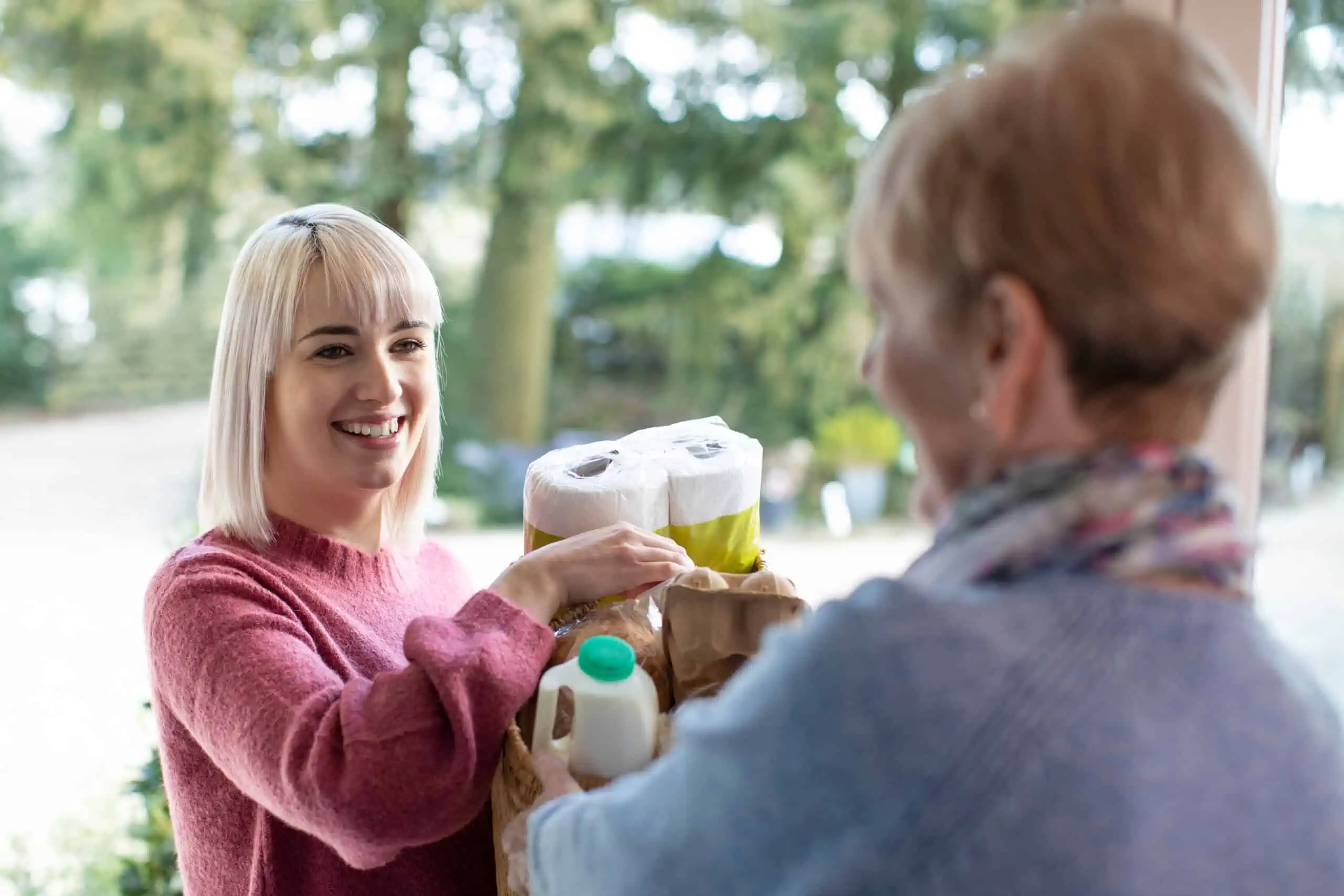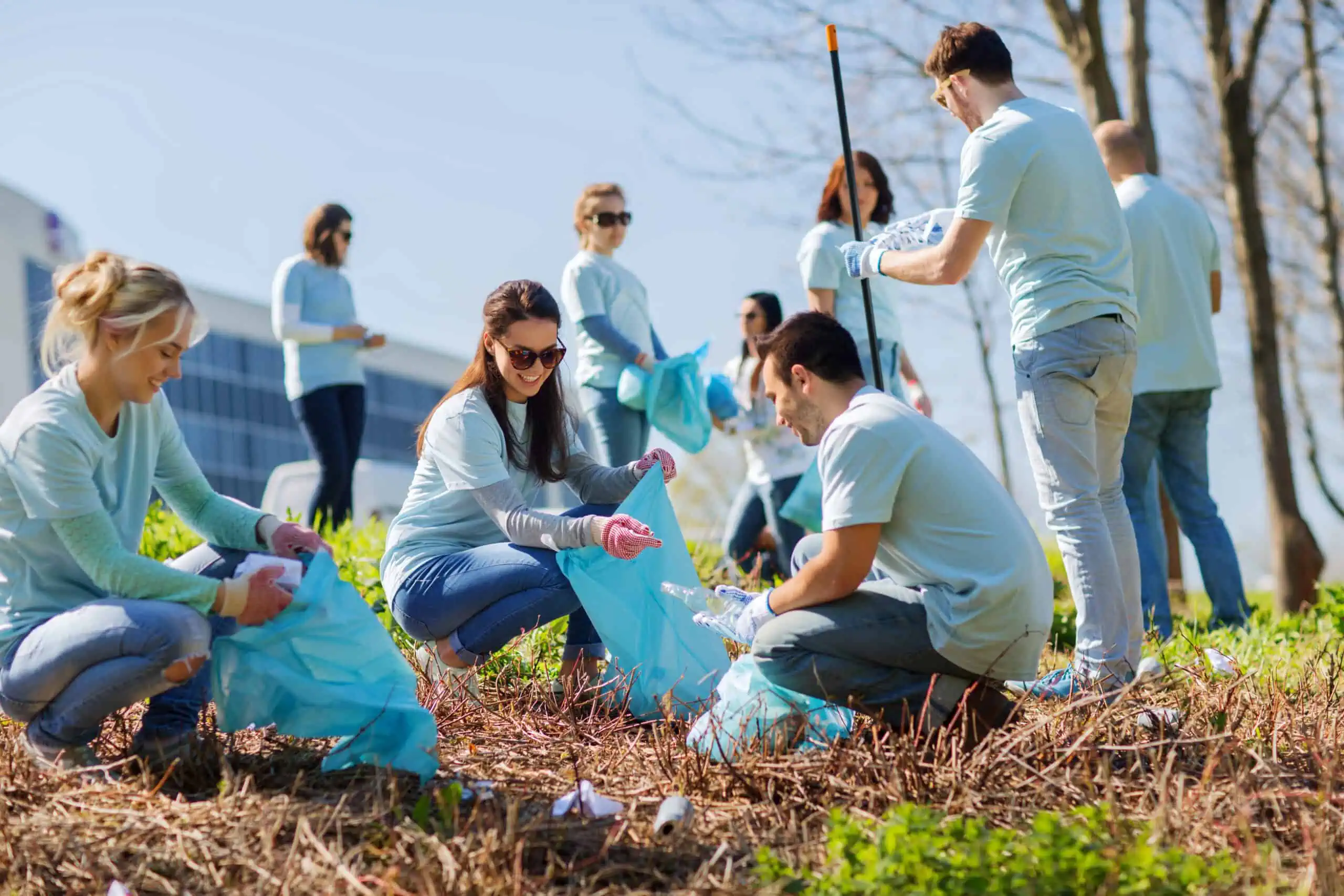9 Ways To Get Familiar With the People in Your New Neighborhood
Posted in: I'm Moving, Neighborhood AdviceMoving to a new city can be exciting, but also a little daunting. If you’re worried about feeling like an outsider in your new hometown, it helps to get involved in your neighborhood as soon as possible.
One study by Rutgers University found that frequent, positive contact with neighbors improves psychological well-being. Additionally, consistently low levels of contact with neighbors are linked to a decline in the same measure, especially as people get older.
But don’t worry, you really don’t have to go door-to-door and personally introduce yourself to everyone in the neighborhood. Here are nine ways to naturally get involved in the community, meet some new friends, and maybe even make some changes.
How To Learn Your New Neighborhood
1. Quickly introduce yourself to your neighbors online
If you’re still in the midst of unpacking boxes and arranging furniture, the last thing you want is to host anyone for coffee or dinner. Fortunately, you can introduce yourself and start getting to know your neighbors without even having to meet them.
“…for every $100 you spend at a locally-owned business, $68 stays within the local community, versus just $43 when you shop at a national retailer.”
Start by signing up for Nextdoor, an app for neighborhoods that lets you buy and sell items, get the scoop on local happenings, and more. It’s available in 300,000 neighborhoods and one in three U.S. households uses it. Your first post can be a simple, friendly “hello” where you let your neighbors know you’ve recently joined the community and tell everyone a little bit about yourself.
See prices for local moving labor. Read real customer reviews. Easily book your help online.
Similarly, there may be local Facebook groups dedicated to keeping residents informed about what’s happening in the community, or even connecting people with certain interests. For example, you might join your local “Buy Nothing” group, where neighbors can post about free items they have available, or find out if anyone is willing to donate a certain item they need. If you just moved, it’s a great way to meet new people and get rid of your extra stuff. Win-win!
2. See what events your community currently has
Even the smallest towns have local events going on; maybe there’s a Thursday morning farmer’s market, a community theatre show, or a new hiking meetup. Seeking out a community event calendar is a huge way to meet like-minded neighbors, or even to find ways to help out.
Search through Eventbrite, Time Out and Meetup. And never underestimate the power of your neighborhood’s bulletin boards and local newspapers.
3. Stand out and do some favors for your neighbors
How nice would it be if someone knocked and your door and asked if you needed some help moving in?
So you can imagine how one of the best ways to establish yourself as a good neighbor is also one of the simplest: Make yourself available.
How though? Opportunities are most prevalent on apps and Facebook; it’s often as simple as offering to pick up groceries or prescriptions for your elderly neighbors or offering to feed pets and water plants when they’re out of town. Why not?
Have children? Make playdates with neighborhood kids! Once you’ve gotten to know a few families better, offer to babysit (or if you have an older child interested in the job, offer up their services as a sitter). Again, Nextdoor is a great tool for finding out what’s happening in the neighborhood and learning about opportunities to help.
4. Your pet (or future pet) is the biggest icebreaker ever
Walking your dog around town or taking it to the local dog park is a super easy way to meet fellow pet parents. (A cute pup can be a great icebreaker!) Plus, if you’re into a certain breed, there may be local meetups for enthusiasts, so don’t forget to Google your area for any meetups or events.
And if you don’t have a furry friend yet, but want one, consider bringing a stray cat or dog (or even a rabbit or bird!) into your home and giving that pet a chance at a new life.
With just a little Googling, you can adopt an animal from a local shelter or rescue, or help multiple pets find their forever homes by fostering.
5. Buy stuff from the local businesses near your home
Sure, Amazon Prime’s two-day shipping might be one of the most convenient inventions on the planet … but it’s not great for the environment, and there are likely many local Mom-and-Pops that could use your business instead.
There are a ton of benefits to supporting local businesses. Buying from places near you:
- Cuts down on packaging and emissions
- Helps create local jobs
- Pumps money back into the local economy
In fact, for every $100 you spend at a locally-owned business, $68 stays within the local community, versus just $43 when you shop at a national retailer.
Plus, you learn about the area by talking to regulars and shopkeepers. If you frequent a business, your face becomes familiar and you make friends with other people who live nearby.
See prices for local moving labor. Read real customer reviews. Easily book your help online.
So the next time you eat out, try a local restaurant and be sure to tip well. Do at least some of your grocery shopping at farmers’ markets to support local agriculture. Or check out your neighborhood boutiques for one-of-a-kind finds. (And when you find a great spot, give them some extra support by sharing it on social media!)
6. Donate to the charities and food banks that exist nearby
If you’re wondering what your new place’s biggest needs are, then it just makes sense to check out the local charities, food drives, and other charitable organizations nearby. By doing a little research, you’ll get a much better sense of the specific social issues that affect your community the most.
“One study by Rutgers found that frequent, positive contact with neighbors improves psychological well-being.”
If you’re not sure where to donate, Charity Navigator is a great place to start. It lets you look up organization ratings and gives you information on how each charity works. If you’re looking for a specific type of organization, you can try searching these directories as well:
See prices for local moving labor. Read real customer reviews. Easily book your help online.
Thinking about donating to someone? Here are some donation ideas, and the best ways to do it:
- Money: A no-brainer, often charitable organizations already have a deep understanding of what their members need. Donating money allows them to channel resources where they’re required.
- Food: Local food banks are a crucial part of communities. Keep in mind that many food banks don’t have adequate refrigeration, so avoid donating perishables or frozen foods. You can also ask what they’re in need of; some items like cooking oil are always in-demand, but most people don’t think to donate them.
- Clothing: Make sure you’re giving items that are clean, gently used, and devoid of tears and holes. It’s a good idea to call the charity ahead of time and find out what clothing items and sizes are most needed.
- Toiletries: People often overlook hygiene necessities when donating. Think about giving essentials such as toothpaste, soap, shampoo, and deodorant.
- Furniture: If you have seating, tables, lamps, or bed frames taking up storage space, someone out there will make great use of it. If you don’t have a vehicle or the upper body strength to move large items, many organizations will pick up furniture for free at your location.
- Books and toys: Many children need developmental tools that their families can’t afford.
- Pet food and pet supplies: Donate food, blankets/towels, bowls, toys, and more to animal shelters, rescues, or families with pets.
7. Volunteering is still king
If you’ve bounced back from your moving exhaustion quickly and are the type of person who loves getting directly involved, one of the most valuable resources you can share with your new community is your time. And there’s likely a special skill that you can put to good use.
Maybe you have great administrative, technical, or customer service skills that could help out a local organization. But even if you have no specialized skills, there are countless ways for you to lend a hand, from monitoring recreation center activity to spending quality time with lonely seniors. Plus, you might meet other volunteers who share your same values.
Some places where your volunteer time might be needed include:
- Volunteer fire department
- Local parks and nature centers
- Senior centers
- Food banks
- Soup kitchens or city missions
- Career services
- Habitat For Humanity
8. Sign up to mentor someone nearby
Yes, people really need mentors!
Offering up your time as a mentor to a young person in the community is a great way to pass some of your expertise on. Some organizations safe to consider include the Big Brothers and Big Sisters of America, YMCA/YWCA, Boys and Girls Clubs of America, and 4-H, all of which provide younger people with activities and opportunities they wouldn’t otherwise have.
“Nextdoor [is] an app for neighborhoods that lets you buy and sell items, get the scoop on local happenings, and more. It’s available in 300,000 neighborhoods and one in three U.S. households uses it.”
If you’re particularly interested in contributing your time to youth education, there are several options:
- Tutoring: You don’t have to be a certified school teacher to help local kids with their homework or improve their grades. Check with the local library or online for opportunities to tutor in your area.
- STEM mentorship: If you have expertise in science, technology, engineering, or math and want to ensure more kids pursue these important fields, consider providing a STEM mentorship.
- University mentorship: If you prefer to work with older students, consider becoming a university mentor. Check with your local university about volunteer opportunities they might have for you. (This could involve anything from participating in panels or being available to students with questions.)
You might also consider coaching for a local youth league or volunteering to teach an art project. Ask around or search online to find opportunities to contribute to your community’s youth population.
9. Find out when your neighborhood does cleanups (yes, they’re often already scheduled)
If you want to meet local leaders while helping to beautify your neighborhood, try joining a community cleanup. And if there aren’t any on the horizon, organize one yourself!
If you do have to start a cleanup on your own, know it can be done! Here’s what you have to do:
- Don’t keep driving by, pick an area that you think needs cleaned (make sure to decide how large of an area your group will cover)
- Pick a date, time, and a starting meeting location ahead of time
- Put a call out! Try reaching out to green-focused organizations, handing out flyers (if you’re hardcore), and post about it on social media. The more people you can recruit, the larger the impact your cleanup will have and the faster it’ll go.
- Gather supplies, including trash bags, gloves, and pickers. To save money, ask everyone to bring their own.
- Don’t forget that all the trash you gather will need a place to go; contact public works to find out where you can dump waste or see if it’s possible to schedule a pickup.
If your efforts are a success, consider making it a monthly event, and maybe even partnering with neighboring towns.
The bottom line is that no matter how far away you’ve moved, it’s possible to find a new sense of belonging. And you don’t have to go crazy either; in addition to getting involved in community organizations and charities, it can be as simple as posting “hello” on a community forum.
There are many ways to put yourself out there, and the more you do, the quicker you’ll be considered a good friend and neighbor.











